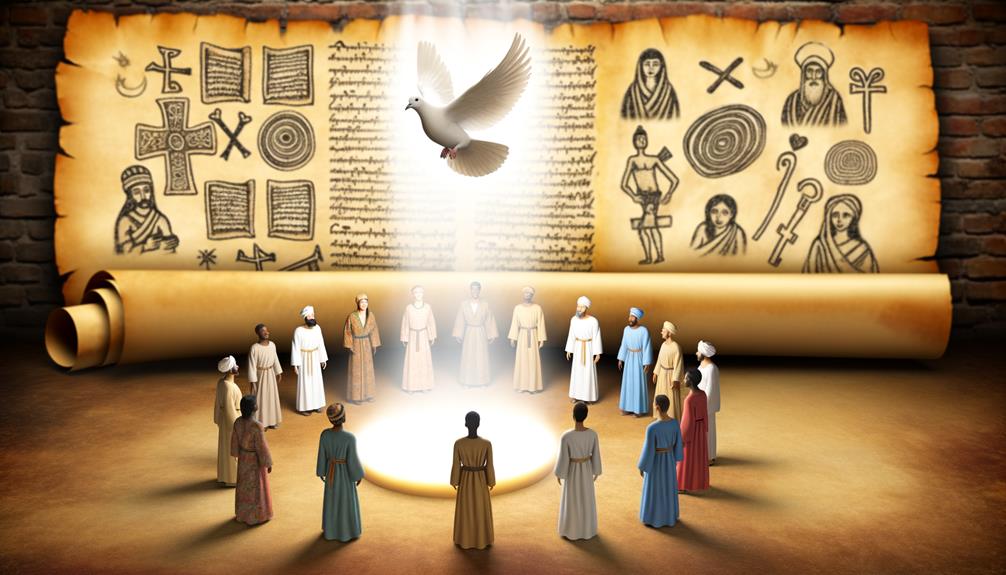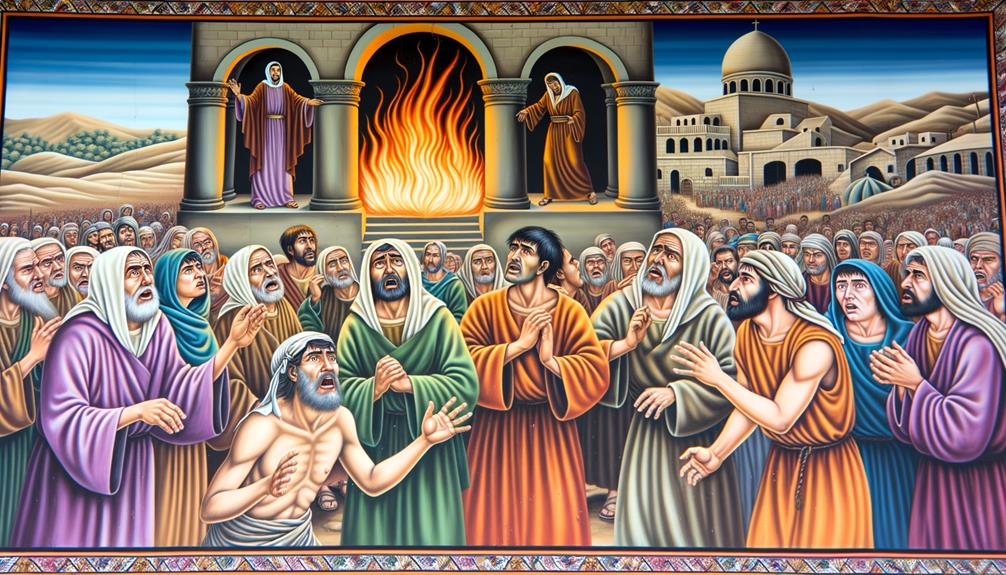Meaning of the Book of Acts in the Bible: Church’s Foundation
The Book of Acts, authored by Luke, is foundational for understanding the early Christian Church‘s development and theological underpinnings. It details the Church’s formation, the role of the Holy Spirit, and the geographical spread from Jewish to Gentile communities.
Key themes include divine empowerment, unity amidst diversity, and perseverance under persecution. Acts captures pivotal events like Pentecost, Saul’s conversion, and Paul’s missionary journeys, emphasizing the Holy Spirit’s guidance in doctrinal and communal matters.
Understanding these elements provides insight into the formative years of Christianity and its enduring principles, hinting at deeper layers yet to be explored.

Meaning of the Book of Acts in the Bible: A Guide to Early Christianity
| Aspect | Details |
|---|---|
| Book Overview | The Book of Acts, written by Luke, documents the history of the early church and the apostles’ missions. |
| Purpose | Highlights the spread of Christianity, the work of the Holy Spirit, and the unity of the early believers. |
| Key Themes | Evangelism, empowerment by the Holy Spirit, perseverance, and God’s sovereignty. |
| Major Events | Pentecost, conversion of Saul (Paul), missionary journeys, and the establishment of churches. |
| Spiritual Significance | Demonstrates God’s plan for salvation, the power of faith, and the role of believers as witnesses. |
| Cultural Relevance | Shows the transition of Christianity from a Jewish context to a universal faith. |
| Lessons and Insights | Encourages boldness in faith, reliance on the Holy Spirit, and unity in spreading the Gospel. |
Historical Context

The Book of Acts, authored by Luke, provides a crucial historical account of the early Christian church‘s formation and expansion within the socio-political framework of the Roman Empire.
Written in the first century, Acts chronicles approximately three decades, commencing with Jesus’ ascension and culminating in Paul’s Roman imprisonment.
This period witnessed significant political and cultural shifts that influenced the nascent Christian movement. The Pax Romana, a prolonged era of relative peace, facilitated safer travel and communication across the Empire, thereby aiding missionary endeavors.
Additionally, the Roman road system and common Greek language (Koine) further enabled dissemination of the Christian message.
Understanding this historical context is indispensable for comprehending the complexities and dynamics that shaped early Christian evangelism and community formation.
Major Themes

Building upon the historical backdrop of the early Christian church, the Book of Acts elucidates several major themes that underscore the theological and communal developments of the emerging faith. Central to these themes are the empowerment through the Holy Spirit, the expansion of the Gospel to the Gentiles, and the unity and diversity within the early Christian community.
| Theme | Description |
|---|---|
| Empowerment | The Holy Spirit enabling apostles to preach and perform miracles |
| Expansion | The spread of Christianity beyond Jewish communities |
| Unity and Diversity | Integration of varied ethnicities and backgrounds |
| Persecution and Suffering | Endurance of believers amidst trials |
| Divine Guidance | God’s direction in the mission of the apostles |
These themes collectively highlight the dynamic and transformative journey of early Christianity.
Key Events

Several pivotal events in the Book of Acts serve as foundational moments that shape the trajectory of the early Christian movement. These events not only narrate the historical progression but also provide theological insights into the nascent Church.
Key events include:
- Pentecost (Acts 2): Marks the descent of the Holy Spirit and the birth of the Church, leading to the apostles speaking in tongues and Peter’s first sermon.
- Conversion of Saul (Acts 9): Saul’s dramatic encounter with Christ on the road to Damascus transforms him into Paul, a significant missionary and theologian.
- Council of Jerusalem (Acts 15): Addresses the inclusion of Gentiles in the Church, establishing that faith in Christ, not adherence to the Mosaic Law, is essential for salvation.
Role of the Holy Spirit

In Acts, the Holy Spirit emerges as a central figure, orchestrating the growth and guidance of the early Church through acts of empowerment, revelation, and divine intervention.
The Spirit’s presence underscores the continuity between Jesus’ ministry and the burgeoning Christian community.
Manifestations of the Spirit at Pentecost (Acts 2) signify the inauguration of this new era, where believers are endowed with spiritual gifts and boldness to proclaim the gospel.
The Spirit directs missionary journeys (Acts 13:2-4), resolves doctrinal disputes (Acts 15), and imparts wisdom and courage to leaders like Peter and Paul. The Spirit’s guidance is pivotal in spreading the Gospel, as evidenced by the successful establishment of early churches throughout the regions. As leaders navigated challenges, they leaned on prayer and the Holy Spirit’s direction, fostering unity and strength among believers. This divine accompaniment ensures that, much like the righteous man Bible verse suggests, their paths are established, leading them toward fulfilling God’s purpose in their lives.
Through these actions, the Holy Spirit not only authenticates the apostolic mission but also guarantees the fidelity of the Church to its divine mandate.
Influence on Early Christianity

The Book of Acts profoundly shaped early Christianity by chronicling the spread of the gospel and the establishment of Christian communities across diverse regions. This scriptural narrative highlights the transformative power of the Holy Spirit and the perseverance of early missionaries.
Its influence can be delineated through three significant aspects:
- Missionary Journeys: Acts details the travels of Paul and other apostles, demonstrating the geographical and cultural expansion of Christianity.
- Community Formation: The text describes the formation of Christian communities, emphasizing communal worship, shared resources, and mutual support.
- Doctrinal Development: Acts addresses theological disputes and doctrinal clarifications, which were pivotal for the unity and orthodoxy of early Christian belief.
These elements collectively underscore the foundational role of Acts in shaping the trajectory of early Christianity.
Conclusion
The Book of Acts, a pivotal text within the New Covenant, offers profound insights into the nascent stages of Christianity.
Through its historical context, major themes, key events, and the pivotal role of the Holy Spirit, Acts reveals a narrative that is as theologically rich as it is historically significant.
This exploration beckons further contemplation, leaving one to ponder: how did these early developments influence contemporary Christian thought and practice?
The answers lie within the intricate tapestry of Acts itself.






